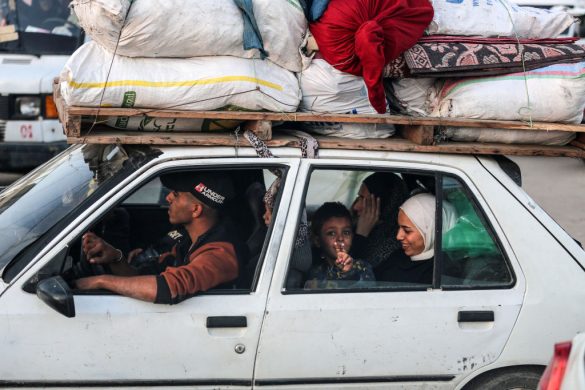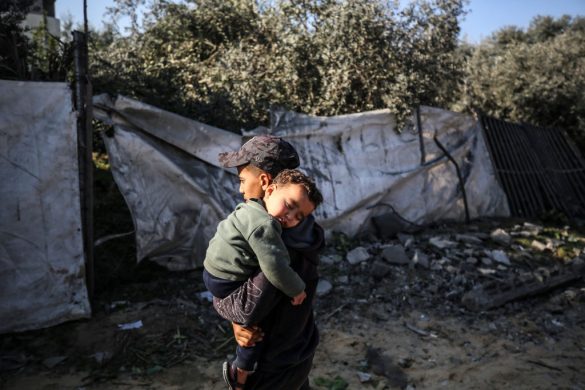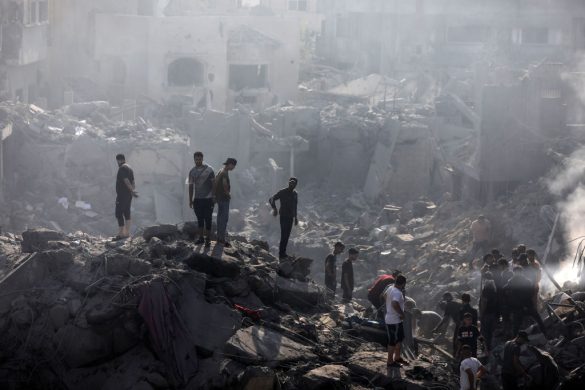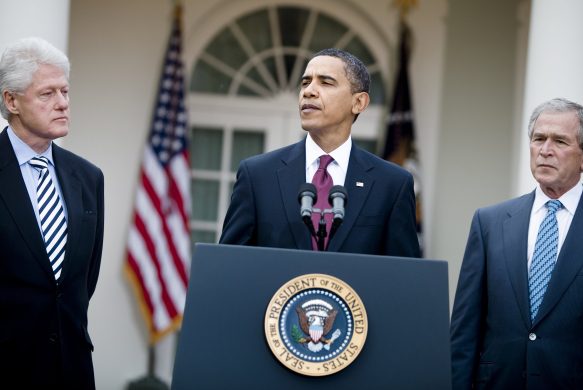FNs Fødevareprogram (WFP) måtte gå tiggergang i december for at få midler til mad til de syriske flygtninge – nu er turen kommet til FNs Sundhedsorganisation (WHO): Der er ingen penge til sundhedspleje til 16 millioner – Mogens Jensen med til stort donormøde tirsdag.
Handels- og udviklingsminister Mogens Jensen (S) deltager i den international donorkonference om den humanitære krise i Syrien, der finder sted i Kuwait tirsdag d. 31. marts.
Konferencen skal sikre fortsat internationalt fokus på den alvorlige humanitære situation i og omkring Syrien. Op til konferencen aflægger Mogens Jensen besøg i Jordan, hvor fokus vil være på de mange syriske flygtninge.
DAMASCUS, 27 March 2015 (UN News Service): Ahead of next week’s third International Humanitarian Pledging Conference for Syria, the United Nations health agency’s top official in the country said Friday that more than 16 million Syrians and Syrian refugees are in need of health support.
WHO, however, has so far received no new funding to meet the 124 million US dollar (740-750 mio. DKR) needed to finance humanitarian operations in the country this year.
“Vi kan ikke fortsætte uden penge”
“The Kuwait pledging conference comes at a crucial moment to show the world`s commitment to assisting those affected by the crisis,” said Elizabeth Hoff, UN World Health Organization (WHO) Representative in Syria, adding:
“We are unable to sustain our operations as the funding gap increases at an alarming rate. We call upon donors to continue to support our efforts to provide basic health services to the Syrian people.”
Ms. Hoff were speaking after returning from a recent visit to Aleppo, during which she visited Al Razy hospital shortly after scores of people were brought in following an attack on a public square the previous day.
She noted that only four out of 11 public hospitals remain operational in the city and all health facilities are overcrowded and experiencing critical shortages of medical supplies.
“Scenes of severely injured children and civilians are yet another stark reminder of the immense and continuous suffering of the Syrian people,” she said.
Over halvdelen af alle hospitaler fungerer kun delvis eller slet ikke
She stated, that 57 per cent of public hospitals nationwide are only partially functioning or are completely out of service.
In Aleppo, she said hospitals required generator power because the population could rely on electricity for only one to three hours each day and she estimated that 1.3 million people needed health assistance in Aleppo alone.
At the same time, she said, the health situation continues to deteriorate across the country.
“As weather temperatures become warmer, there is an increased risk of waterborne diseases,” she said. “Therefore, improving hygiene conditions and practices is essential to protecting the population.”
Kan ikke længere rense vandet
Currently, WHO is unable to chlorinate water stations. This has led to heightened risks, which Elizabeth Hoff also expressed concerns about.
She mentioned several other issues, including the drop in vaccination rates from about 90 per cent nationwide before the crisis, to between 50 and 60 per cent now.
Ms. Hoff described how healthcare was jeopardized by the 70 per cent drop-off in local production of medicines and lack of availability of many life-saving treatments, as well as by shortages of surgeons, anaesthesiologists, laboratory professionals, and female health professionals.
The total number of available healthcare workers stood at just 45 per cent of 2011 levels.
Læs også
http://www.un.org/apps/news/story.asp?NewsID=50444#.VRgic2Vqr
Se om WFPs succesfulde kampagne i december i fjor på
http://www.u-landsnyt.dk/nyhed/09-12-14/pengene-str-mmede-ind-fn-kan-atter-give-syriske-fl














